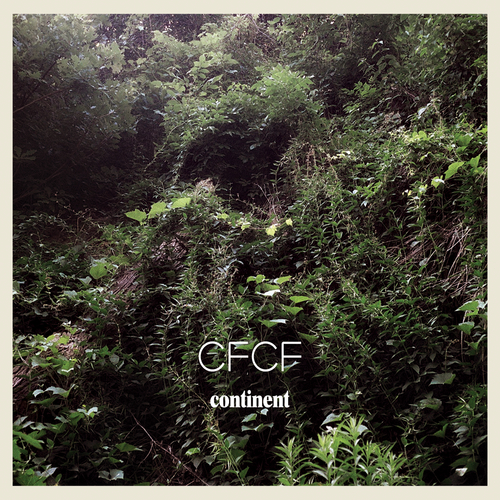The impressive quality about the debut album from CFCF – 21-year-old Montreal-based Michael Silver – is how he manages to establish a singular and almost defining sound to put to his name. Run through Continent the first time and you might not hear it. He takes cues from many other electronic artists such as Diskjokke and Deadmau5 with energetic and attention-grabbing loops, thumping beats and bouncy piano, but he never gets stuck in these similarities. The music flows seamlessly, melding and fusing like liquid metal being mixed in sweltering temperatures.
Opener “Raining Patterns” oozes, but like the title might suggest it also glistens, like the first drops of morning dew pattering on leaves as they fall to the ground. There’s an odd sense of engrossment to be taken from it in that sounds alien and robotic, even cold at points, but its sounds simultaneously familiar and welcoming, like an image we all know from somewhere or a moment we’ve all found ourselves in before (probably getting caught in a rain shower somewhere unexpectedly). “Invitation To Love” has a dulled buzz synth line to it, but the repeating handclaps keep you in until a guitar solo from some forgotten ’80s song finds a place.
The ’80s influence is evident from the start and is likely one of the reasons you might think this to be a somewhat contrived sounding record on those first few listens. But they grow on you and you begin to picture Silver loading up all his modern recording and mixing software with backlogs of beats and processed instruments from 20 years ago. If you don’t picture it quite like that or aren’t quite hearing the influence of the past, then the cover of Fleetwood Mac’s “Big Love” will transport you back while keeping you fixed in the present. Despite fitting it out to sound like a track that should (and so easily could) be played in clubs, the cover’s surprisingly charming and respectful of the original. It might feel double the pace and have the vocals sucked into the music itself, but I feel tempted to put the overall result on par with the provocative and ubiquitous original.
Elsewhere, Continent has moments that would suggest the album title should have been pluralised. On “Letters Home,” the shiny strings suggest something taken from the European dance scene, while the pan pipes instead go for something almost tribal and native (that being subjective as to where you link pan pipes with in your mind). Nonetheless, the two juxtapose but work together brilliantly. On the more subtle “You Hear Colours,” undulating tones echo a scene in a sandy dune in Egypt seconds before glistening synths come with rippling guitars following on top of trembling and deep bass beats. Again Silver melds sounds and instruments into one almost – he evens throws in another guitar solo without it feeling out of place.
The music on Continent doesn’t really falter – there’s always something happening to demand the attention of the listener. The problem is when he makes the music almost predictable. “Monolith” is fine enough, but positioned where it is (at the centre of the album), it always feels like there should be a greater climax after the synthetic drums kick in after the four-minute mark, instead of wavering about on sprightly piano for nearly two minutes (and reminding me somewhat of The Human League’s “Don’t You Want Me”) and fading away. “Come Closer” has an almost grimy feel, but the breathless vocals distract more than anything – a shame since it sounds like there’s another solid track hidden in there somewhere.
But those are the only real faults that come to mind, which in turn don’t affect the end result much. Even though it runs more than an hour, Continent is still cohesive, engaging and enjoyable to sit all the way through. But if that’s too daunting then there’s no need to shy away from it as a whole, because it also works surprisingly well in smaller doses, even if you just pick out the likes of the superb “Snake Charmer,” which again plays as its title suggests, hypnotizing you as it weaves wiry guitar through different soundscapes. And right at the end is “Half Dreaming Reprise,” where everything is changed – the melodies drift by with an almost ticking quality, as if something sinister were to be suggested as a slightly irregular beat emerges. Not only does it not sound like the song of the same title earlier on, it sounds nothing like anything else here. When Silver is able to reinvent himself so successfully, who knows what else he’s capable of?

